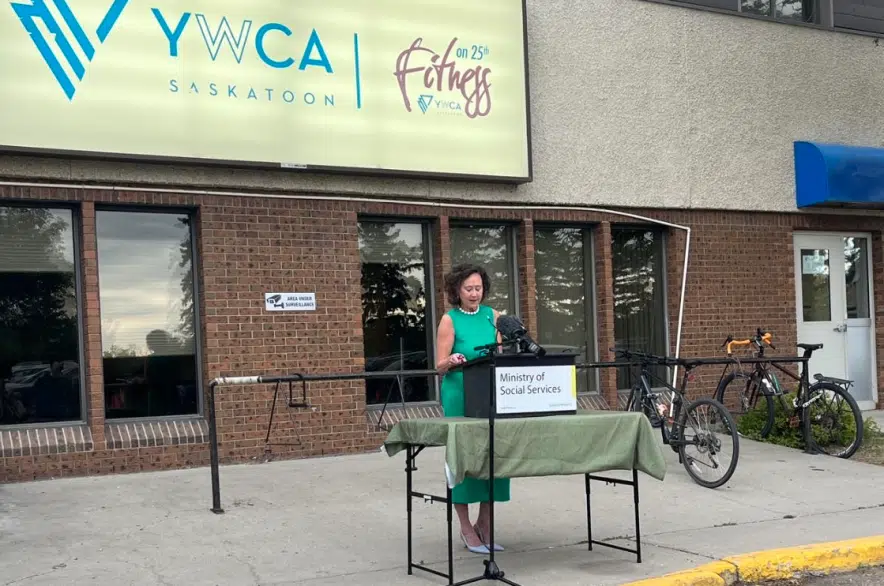People gathered outside the YWCA building in Saskatoon on Tuesday to celebrate the announcement of $1 million in funding for the organization’s second stage housing project.
The grant is to build a space where women and their children can live after fleeing interpersonal abuse or violence.
“We, for the first time ever in the province, in the last budget invested in the second stage next step where really in that 18- to 24-month period, women are needing to perhaps move beyond the emergency shelter need into stable housing,” said Bronwyn Eyre, Saskatchewan’s attorney general and minister of justice.
The funding is in addition to the Government of Saskatchewan’s $27.5-million investment this year to address interpersonal violence, money that has been spread out throughout various ministries.
Second stage housing is for women and their children needing support in the pivotal moments when they are trying to rebuild their lives.
“They can pursue education support (or) employment support. Their children have a stable base from which to go to school,” said Eyre.
The money will help fund one-, two- and three-bedroom units. Second stage housing received $876,000 over three years in the recent budget. That money was aimed directly on the operational side and will go towards specific support and counselling.
Those who stay in the units will pay rent and are responsible for their own living expenses.
“We are sincerely grateful to the Government of Saskatchewan for this funding, which will directly and materially improve the lives of the women and children we serve,” YWCA Saskatoon CEO Cara Bahr said in a media release.
“This funding will allow us to provide housing and support for women and children experiencing trauma, fleeing abuse and violence and experiencing homelessness. This investment will make our community and province a better place for all.”
The budget also included $56,000 per year for three years that will go to the YWCA to help fund the project and work that it does. The $1 million is for capital and is an investment specifically for the YWCA second stage housing.
Eyre said she’s looking forward to investing more in second stage housing, and is happy with how much funding the first stage has received.
“We have seen a lot of investment over the last few years on the emergency shelter side, so that initial emergency moment in women’s lives where they need that support,” said Eyre.
No details were provided on when the second stage bedroom units were to be finished, or if plans will be announced for similar second stage development for other areas in the province.











